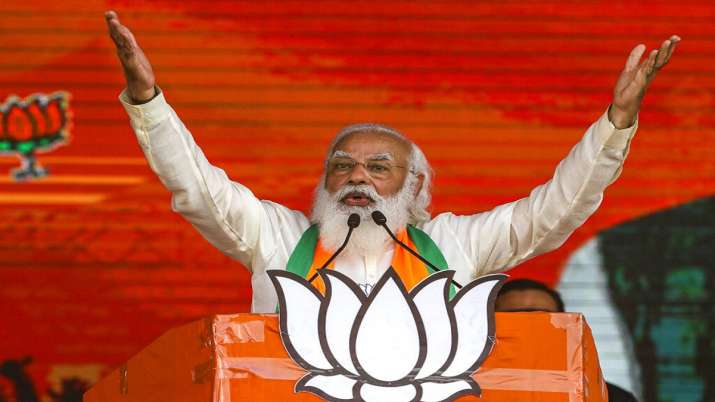The Counter Campaign
Realising that the Narendra Modi-led government is getting a lot of flak for its handling of Covid, there is a counter narrative that is being unleashed on WhatsApp and Twitter. There are a host of messages being sent as forwards, and also being tweeted, mainly by doctors. All the messages follow a similar thread pointing out that what India is facing today the US faced earlier—from medicine shortage, to lack of hospital beds and overfilled morgues. However, points out one such message “most of you are clueless about it because the media in the US was a little more responsible with its reporting”. This is apparently sent by a US-based doctor. Another message posted on Twitter by an India-based doctor points out that no nation in the world will be able to control Covid by increasing beds, ICU wards and oxygens. “The answer is not in healthcare infrastructure, for if it was then developed western countries wouldn’t have had that many cases and fatalities” goes the message, ending with a well-intentioned plea to mask up and maintain a high level of hygiene. So the counter narrative is clear—it’s not the fault of our political class but the media for highlighting such incidents such as lack of infrastructure and preparedness. But—and this is specially for those who compare us to the US—most of the incidents pointed out took place during the first wave whennone of us knew what the “novel” coronavirus was all about. However, what is happening in India now happened during a second surge after we had been forewarned that a more lethal second wave could happen in India as it was happening in other countries. And yet we were not prepared. The jury is still out as to whose fault it is; defenders of the Modi government are passing the blame to inadequate reports from state CMs (aren’t a majority of our states lead by BJP CMs?) and also highlight the fact that health is a state subject. Well so were the farmers’ bills that were recently passed via a loophole by the Central government. As the saying goes, there is always a way.
Time to dehyphenate Modi and Rahul
A recent survey by C-Voter shows that only 37% of the respondents were “very much satisfied” with PM Modi’s governance during Covid times, falling from 65% in 2020. Another survey done by a US firm (reported by Reuters) recorded that his ratings had fallen 22 points from August 2019 to April 2020 but was still at a high of 63%. The silver lining here being that no other Indian leader’s ratings equalor surpassthat of PM Modi, even now. Which brings us to the question—isn’t it time to dehyphenate Modi and RaGa? Does the old narrative that however bad Modi may be there is always someone who is worse still hold? Can the people of India vote against someone without an alternative in sight? Yes, says political analyst Rasheed Kidwai pointing out that voters do tend to vote devoid of an alternative option and cites the examples of 1977, 1991, 1996 and 2004 elections. If yes then that’s the only factor that should worry Modi, for while the opposition is still to get its act together the PM has already begun his comeback campaign, for after being missing throughout the second surge, suddenly he is everywhere, doing aerial surveys of cyclone affected areas and holding zoom conferences with zilla parishad chiefs and CMs, voicing his concern about the pandemic spreading to rural India.
Modi’s 26/11 Moment?
According to Congress Lok Sabha MP and national spokesperson, Manish Tewari, the PM’s handling of the second surge (of Covid) could be this government’s 26/11 moment. While speaking to NewsX in an exclusive interview he explained that it was after 26/11 that the UPA government lost the middle class vote and the Modi government was in danger of losing the same vote because the middle class has been most affected by the second surge. The first wave hit the migrants the most. But the impact of the second surge was felt by the middle class as well. It didn’t matter how much money, connections or jugaad you had, everyone was affected by the lack of medical infrastructure, oxygen and medicines. But will it be a turning point or is this something the PM will be able to overcome? That’s something only time will tell and he has nearly three years on his side before the next general elections in 2024.

